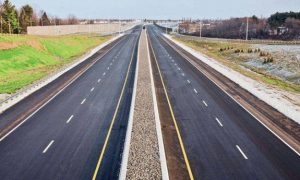There are a couple of things that must be kept in mind and strictly followed to ensure that your claim is not rejected.
The recent two cyclones – Tauktae and Yaas – have wreaked immense havoc on the western and eastern coasts of India, respectively. Several areas of the country, including Orrisa, West Bengal, Gujarat, Goa, Maharashtra, Daman and Diu and many more, have submerged in the wake of heavy rainfall due to the two cyclones. The damages have been caused to not only thousands of houses and other properties, but also to several vehicles parked on the roads. The strong gushing winds due to the cyclone have uprooted hundreds of trees and poles causing them to fall on vehicles parked along the roadside. In fact, even the social media is flooded with images of vehicles submerged in the rainwater.
In numerous incidences where the vehicles get damaged due to rainwater, it is observed that the rainwater can significantly damage several important components of the vehicle causing severe damage to the engine, electric system and the transmission. Often, the expenses to repair these important parts can go as high as Rs 2 – Rs 3 lakh. However, thankfully in case your vehicle is damaged due to natural calamities, you can claim insurance provided you have a valid motor insurance policy.
A comprehensive motor insurance policy bears the cost of the repairs of a vehicle damaged due to natural calamities like cyclones, lightning, earthquakes, landslide, floods, hurricanes, storms, typhoons, and inundation.
Read More:-Insurance: Claiming damages due to cyclone is now easier
Insurance Plays an Important Role
In case your vehicle was damaged in the recent cyclone, it is best advised to reach out to your insurer at the earliest and follow the steps as advised by the agent to get your vehicle repaired. Before you make any self-attempts to get your vehicle repaired, it better to follow the instructions of your insurer and not approach any local mechanic. Before filing a claim for vehicle damaged due to floodwaters, it is important to know that claim process in such a scenario is comparatively longer than a regular claim like for accident of the vehicle.
There are a couple of things that must be kept in mind and strictly followed to ensure that your claim is not rejected. The biggest mistake that most people make with their vehicle damaged due to floodwater is trying to start the vehicle. People have this false perception that by starting the engine, the engine will get heated up which will eventually drain all the water out. However, this is not true and doing so is the biggest mistake.
When you start the engine, the water enters some internal parts of the engine like pistons of the vehicle that result in hydro locking. Do remember, once your vehicle gets hydro-locked, the insurer can directly reject your claim as this was done due to your mistake. This is the reason why it is always suggested to directly get your damaged vehicle toed to the workshop.
Read More:-Can second Covid-19 wave lead to increased penetration of health insurance in India?
Buy Necessary Add-ons
While it is important to invest in add-ons like Zero Depreciation, Key and Lock Replacement, Cover and Return to Invoice to make your motor insurance plan much more comprehensive, there are some other lesser-known add-ons as well that must be bought for adequate coverage. One amongst them is Engine Protection cover that is very important to claim coverage for damages to the engine. If the engine of your is damaged due to flood water or heavy rainfall, your standard car insurance policy would not pay for the damages as car engine is not included under a standard policy.
To cover this cost, you will need to invest in an Engine Protection Cover. Apart from damages due to rainwater, this add-on also protects the engine against damages due to oil and other machinery. This add-on is a must-have insurance feature to save a substantial amount of money at a nominal premium cost of 0.15% to 0.20% of the Insured Declared Value (IDV).





































